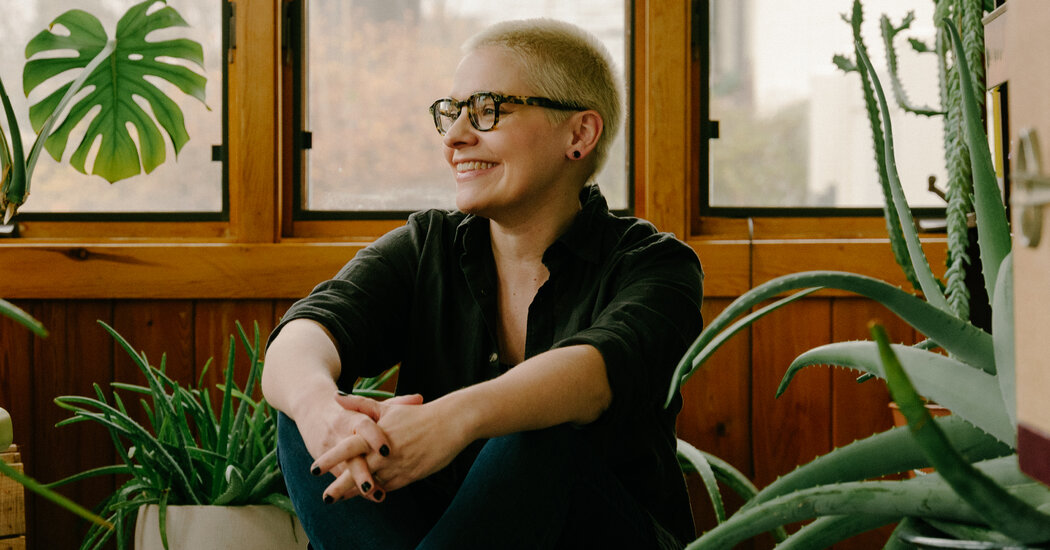
The last five years for Shannon Collins, a wedding photographer who identifies as nonbinary, have been filled with survival and self-discoveries, all while Mx. Collins, captured celebrants’ most intimate and revealing moments.
In October 2019, Mx. Collins, now 39, had craniotomy surgery to remove a malignant lesion. In 2020, as the world shut down because of the coronavirus pandemic, Mx. Collins realized they were queer. A year later they added nonbinary to their identity. Then in early 2022, they were diagnosed with autism.
Mx. Collins, who lives in Abington, Pa., with their spouse, Peter Schuster, a software engineer at the outdoor sporting company REI, and their two children, Adelaide, 9, and Cameron, 5, said that these monumental life changes “reframed my entire existence and made me feel less broken.”
“These major transitions were life-affirming and healing, and reminded me to celebrate myself and those around me,” said Mx. Collins, who identifies as disabled because of their autism diagnosis and the effects of their surgery. “The surgery restricted the mobility of my left hand, and I now get headaches and fogginess from cold and wet weather. I also experience pulsations and buzzing in my ear.”
As for their autism, “I know a lot of people don’t consider that a disability, but I do,” they said. “I’m sound sensitive and miss cues from my body, like hunger or thirst. Making eye contact is hard, and I’m constantly checking my body language because I have to restrict the impulse to sway, flap and or jump.”
Finding a place and a voice in the wedding industry can be difficult. For people with disabilities, doing so can be even harder. Fewer are as vocal and transparent as Mx. Collins, who has made their specific needs work in their favor while creating a place, and space, for themselves and others within the industry.






